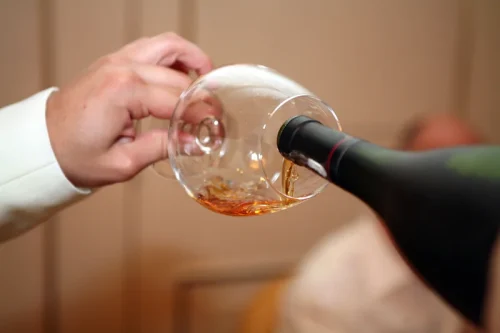Sober living
Why Do So Many People Crave Sugar After Quitting Alcohol?

Hence, a balanced diet is recommended as a nutritional strategy for recovery, potentially helping to reduce cravings and promote overall health. Working with a dietitian or nutritionist familiar with addiction recovery can be beneficial in this regard. They can provide practical tips and personalized meal plans to help manage sugar cravings and ensure nutritional needs are met. It is commonly believed that drinking alcohol in small quantities doesn’t pose health challenges. However, any amount of alcohol is harmful to your overall health and can contribute to health consequences. On the other hand, heavy drinking can lead to some major and serious health issues like heart disease, weak immunity, liver disease and more.
- Discover the need for drug addicts recovery, from overcoming challenges to embracing healthier lifestyles.
- Personally, I know this to be true because when I quit drinking, I substituted the glass of wine for a bowl of ice cream… every night.
- Unlock personal development with common CBT techniques, from journaling to homework strategies.
- This increases their risk of eventually relapsing and returning to alcohol use.
- Chaos might be the law of nature, but your dietary habits don’t have to be.
Five Codeine Side Effects

One theory suggests that the brain’s reward system becomes sensitized during addiction. This means that even after individuals stop consuming alcohol, their reward system remains hypersensitive, leading to an increased desire for pleasurable substances like sugar. Due to the addictive nature of alcohol, individuals who have gone through alcohol addiction may find themselves seeking alternative https://ecosoberhouse.com/article/kudzu-extract-and-alcohol-addiction-can-it-help-you-drink-less/ sources of pleasure and reward. Sugar, with its ability to activate the reward system in a similar way to alcohol, becomes a substitute for the pleasurable effects previously derived from alcohol consumption. By prioritizing nutrition and effectively managing sugar intake, individuals in recovery can improve their mental health and increase their chances of a successful recovery.
Replacing Alcohol with Sugar as a Coping Mechanism
- Severe alcohol use disorders can lead to malnutrition and nutrient deficiencies, as heavy drinking inhibits the body’s ability to absorb essential nutrients.
- Explore effective ways to reduce alcohol use, understand health risks, and discover treatment options.
- Explore the effects of Suboxone on people who use Fentanyl, from treatment efficacy to future perspectives.
- Incorporating foods high in vitamins and minerals can help replenish nutrient stores and reduce sugar cravings.
I see many people quit the booze, but then pick up another addition- sugar, cigarettes, caffeine, social media, sex, shopping, gambling, codependent relationships. We may find relief in these other behaviors because they are triggering the same reward center of the brain. When someone quits drinking alcohol (chronic use), the body will search for dopamine in other ways.
The Need for Drug Addicts Recovery
- Overconsumption of sweet foods can potentiate dopamine release in a manner similar to alcohol, contributing to cravings for both substances.
- While a bit of sugar is never bad, high sugar intake can lead to a relapse of the same substance abuse problems once faced.
- By nurturing the mind, body, and spirit, recovering alcoholics can find alternative sources of comfort and pleasure, reducing the reliance on sugar as a substitute.
- These behaviors include bingeing, withdrawal, craving, and cross-sensitization.
- Discover the crucial role of aftercare in the substance abuse recovery process and prevent relapse.
They can also provide emotional support and help recoverees navigate other aspects of their recovery journey. Chronic alcohol use can result in nutrient deficiencies, including those of B vitamins, magnesium, and zinc. These deficiencies disrupt normal bodily functions, leading to imbalances that increase cravings for sugar. why do alcoholics crave sugar While sugar cravings are common among individuals with alcohol use disorders, consuming excessive amounts of sugar can have negative effects on the body and worsen alcoholism. The intense sugar cravings experienced by people with alcohol use disorders may be the body’s way of compensating for nutrient deficiencies.

Factors Contributing to Sugar Cravings in Alcoholics
Nutrient Depletion
Finding Good Drug Treatment Centers


